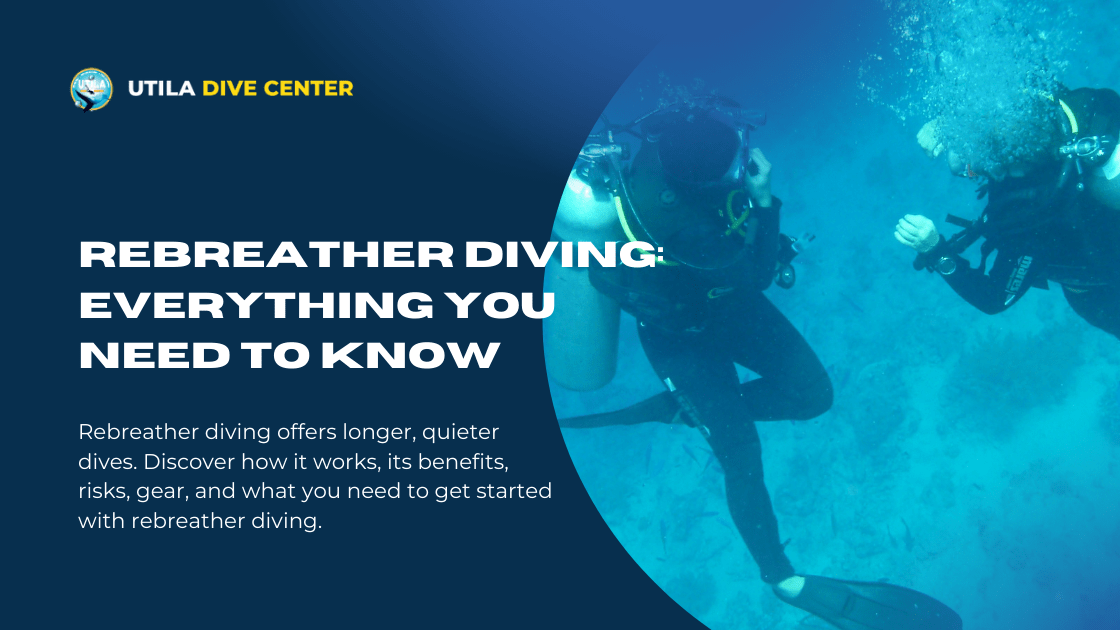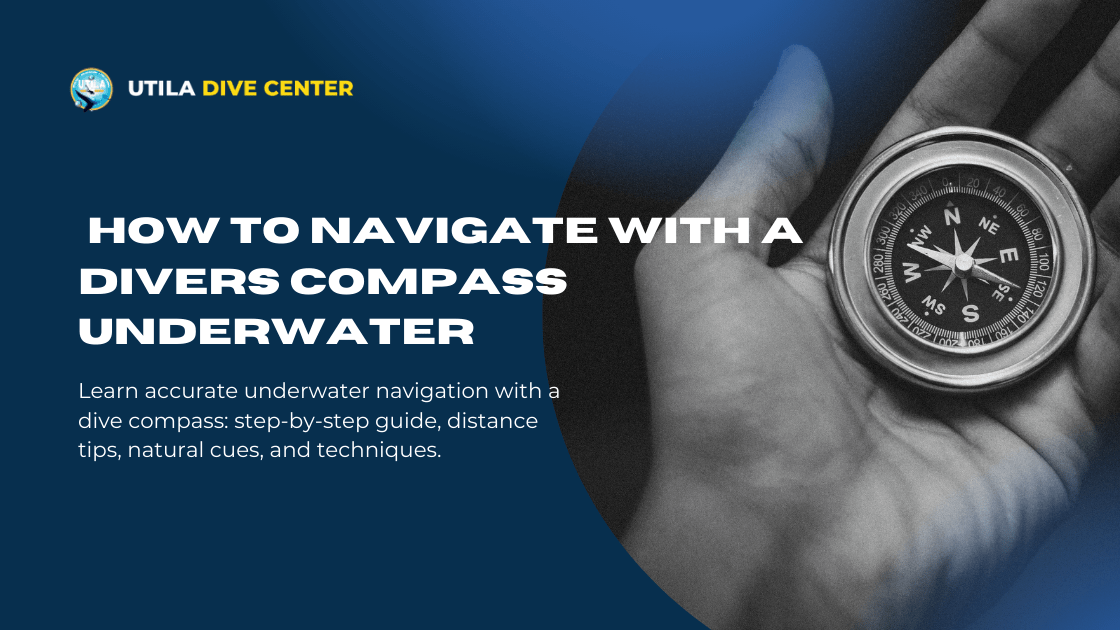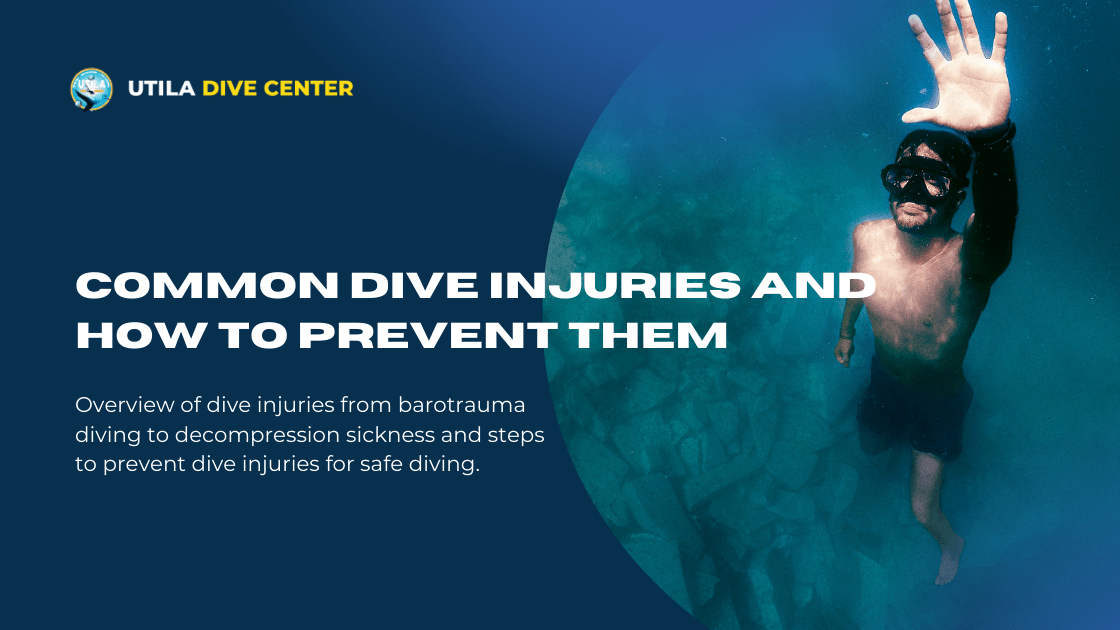
12 Rules of Scuba Diving All Divers Must Follow
12 Rules of Scuba Diving All Divers Must Follow
By: Manny Lagos | Date: 2025-09-29T10:25:30.625Z
You're weightless, diving in the warm Caribbean waters, surrounded by beautiful corals and curious fish, and it all feels magical. But as every true diver knows, that magic only lasts if you follow the rules that keep us safe AND protect the ocean.
At Utila Dive Centre, we've trained thousands of divers over the past 20 years, from complete beginners to future PADI Instructors. If there's one thing we've learned, it's this: knowing the rules of scuba diving isn’t just about ticking boxes. It's about becoming a responsible, confident diver who respects the ocean and everyone diving in it.
So here it is– your go-to checklist. The 12 rules of scuba diving every diver, everywhere, should stick to.
12 SCUBA Diving Rules To Follow While Diving
It doesn’t matter where you're diving, be it tropical reefs, chilly waters, or your local training pool, these rules of scuba diving will help you stay safe and make you fall in love with diving (if you haven’t already).
1. Never Hold Your Breath
Let's start with a classic one. If you forget everything else (please don't), remember this: never hold your breath while diving. Holding your breath on ascent can cause serious injuries. The number one, most important rule in scuba diving is to breathe continuously. Nice and slow, in and out. It keeps you calm, helps with buoyancy, and, most importantly, keeps your lungs safe.
2. Always Dive Within Your Limits
We get it– you want to explore that shipwreck at 30 metres, swim through the cave, or tag along with that advanced diving group. But if you're not trained for it, don't do it. Stick to your certification level and experience. Diving beyond your limits is never worth the risk. Confidence builds with time and believe us, the ocean will wait for you.
3. Check Your Gear Thoroughly
Before every dive, check your gear like your dive depends on it because it actually does. Does the BCD inflate? Check. Is the regulator working properly? Check. Is the tank full? Definitely check. We teach all our students the pre-dive safety check (remember BWRAF?) on Day 1 for a reason. These aren't just rules of scuba diving, they're habits that save lives.
4. Plan Your Dive and Dive Your Plan
This one's a game-changer. Before jumping in, know your max depth, bottom time, air limits, and route. Stick to the plan. The ocean doesn't always play by the rules, sure, but having a plan (and a solid buddy by your side) means you can adapt smartly when things change. And they will change underwater, especially when dolphins show up mid-dive!
5. Ascend Slowly and Safely
Imagine being at 18 metres, then shooting up to the surface like a balloon. Sounds fun? It's not. Ascending too quickly can lead to decompression sickness. Instead, rise slowly, no faster than 9 metres per minute, and always do a 3-minute safety stop at 5 metres. It gives your body time to off-gas and keeps you in line with scuba diving regulations worldwide.
P.S. Don't forget dive and fly rules: wait at least 18-24 hours after diving before hopping on a plane. Your bloodstream will thank you.
6. Monitor Your Air Supply
Your SPG (submersible pressure gauge) is your underwater fuel gauge so check it often. Don't wait until it's zero to realise it's time to go up. We train divers at UDC to check every 5-10 minutes and plan their turn-around pressure ahead of time. This habit becomes second nature with practice and gives you more dive time without stress.
7. Use the Buddy System-Always
Diving solo might sound cool, but having a buddy by your side? That's what keeps dives fun and safe. Your buddy is your backup air source, your navigation check, your underwater photographer, and your best chance of spotting that magnificent octopus hiding under a ledge. Always do pre-dive checks together, stay close, and agree on signals. Remember: Two divers, one team.
8. Equalize Early and Often
Feeling pressure in your ears? Don't power through it. Equalize early (as soon as your head goes under) and keep doing it gently every metre or so on descent. At UDC, we teach multiple equalization techniques like pinch and blow, jaw wiggling, swallowing, and more so you can find what works for you. Pain is your body's way of saying stop and fix it.
9. Respect Marine Life and Coral
Look, don't touch. Seriously. Coral is fragile and marine life isn't there for your entertainment. Kicking, grabbing, or chasing animals can do real damage to them and to you. Floating calmly, controlling your buoyancy, and giving space keep the ocean alive for the next diver. Respect isn't optional, it's the core of scuba diving regulations and everything we teach.
10. Be Physically & Mentally Fit to Dive
Diving is relaxing, but it's also physically demanding. If you're exhausted, hungover, congested, or anxious, it's okay to skip the dive. Your safety matters more than squeezing in one more underwater selfie. At Utila Dive Centre, we encourage self-awareness. If something doesn't feel right, speak up. The ocean's not going anywhere.
11. Know and Respect Local Dive Laws
Every country (and island) has its own scuba diving regulations. In Utila, for example, we have Marine Park rules that protect our reef systems. That means no gloves, no spearfishing, no jet skis (in certain areas) and limited group sizes. Wherever you dive, take time to learn the local laws. They're not just rules, they're the only way to keep diving sustainable.
12. Check Weather, Tides & Currents
A dive that starts in the sunshine can turn stormy in minutes. Before every trip, check the forecast, tide charts, and current patterns. Don't worry, we'll help you read them if you're new. Some of our favourite dives (hello, Black Hills!) depend on picking the right moment in the tide cycle. Being aware of the weather conditions is a non-negotiable for all.
Dive Smart. Dive Safe. Dive with the Utila Dive Center.
These 12 rules of scuba diving are more than just things to remember, they're habits that will help you go a long way and make each dive unforgettable.
If you dive with us, you'll learn all of them in real-world settings with experienced instructors who care about your growth, safety, and love for the ocean. Whether you want to learn how to SCUBA dive, explore top freediving techniques, or become a PADI Instructor, we’re here to guide you every step of the way.
Come join us at the Utila Dive Center– where diving is not just what we do. It's who we are.
Get in touch with our experts today.
References
[1] – Blog.padi.com - The golden rules of scuba diving
[2] – Pros-blog.padi.com - Standard safe diving practices for both scuba divers and freedivers
[3] – Emptynestdiver.com - 10 essential safety rules to become a confident scuba diver

Rebreather Diving: Everything You Need to Know
Rebreather diving offers longer, quieter dives. Discover how it works, its benefits, risks, gear, and what you need to get started with rebreather diving.
Read more
How to Navigate With a Divers Compass Underwater
Learn accurate underwater navigation with a dive compass: step-by-step guide, distance tips, natural cues, and techniques.
Read more
Common Dive Injuries and How to Prevent Them
Overview of dive injuries from barotrauma diving to decompression sickness and steps to prevent dive injuries for safe diving.
Read more
Sidemount SCUBA Diving: Everything That You Need To Know
Thinking about sidemount SCUBA diving? Here's a guide with its benefits, drawbacks, setup tips, and history that you need to know before sidemount diving.
Read more